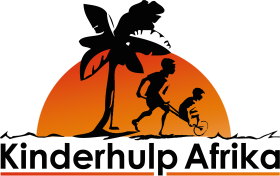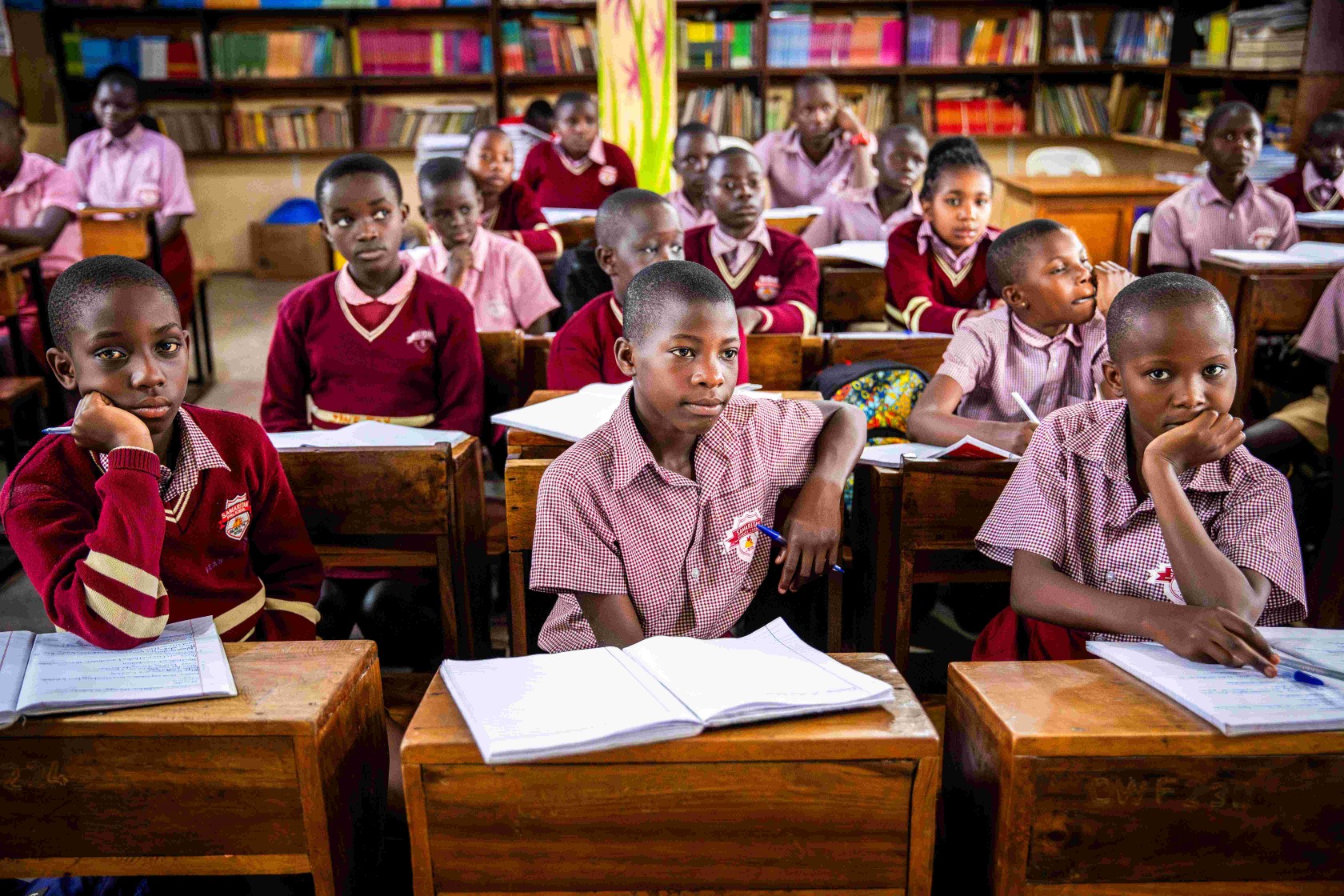
Education
Primary school, secondary school, and vocational school
Education for vulnerable children
Our campus in Namugongo (Uganda) houses a kindergarten, primary school, secondary school, and vocational school. More than a 1,000 children attend these schools. Many of them are orphans or come from poor families. We want to help these children by giving them quality education, so that with a diploma in hand, they can find work and support themselves. All our teachers are Ugandan.
Kindergarten
Over 60 children attend the kindergarten, where they learn to read and write through play at a young age. Singing, dancing, sports, and games are an important part of the children's daily life. The teachers are full of energy and passion, and their love and care for the children is remarkable.
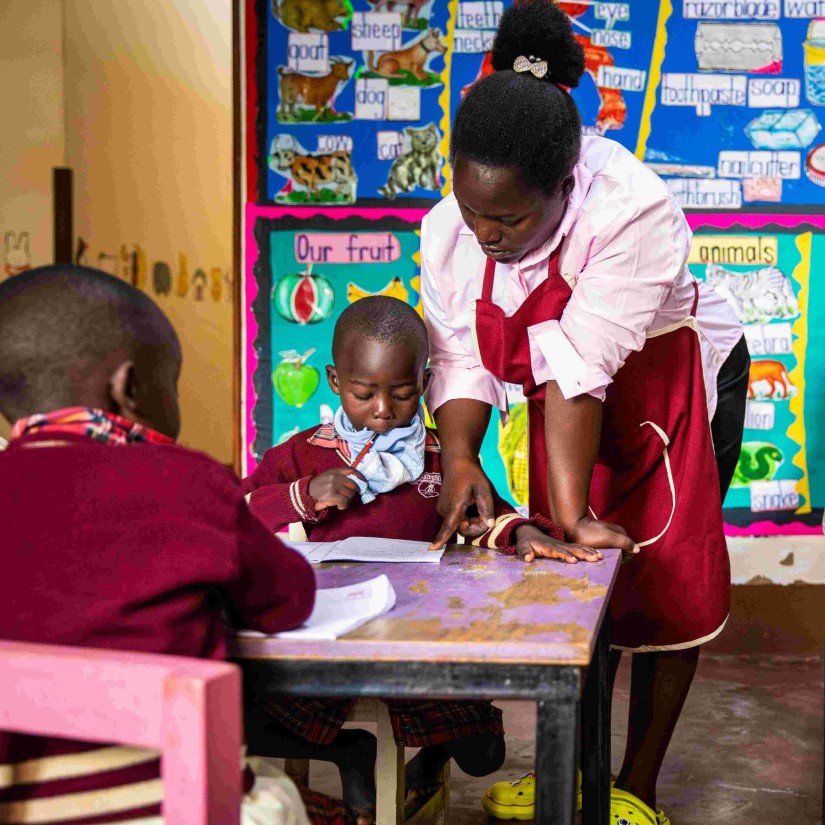
Primary school
Primary school lasts seven years. Children are placed not by age but by ability—whether or not they can already read and write. In Uganda, this varies greatly, as many children never had the chance to attend school at an early age. Classes are given in English, Uganda’s official language, and children also learn Luganda, the local language of Central Uganda. The school period ends with a national exam, which grants access to secondary school. More than 400 children attend primary school.
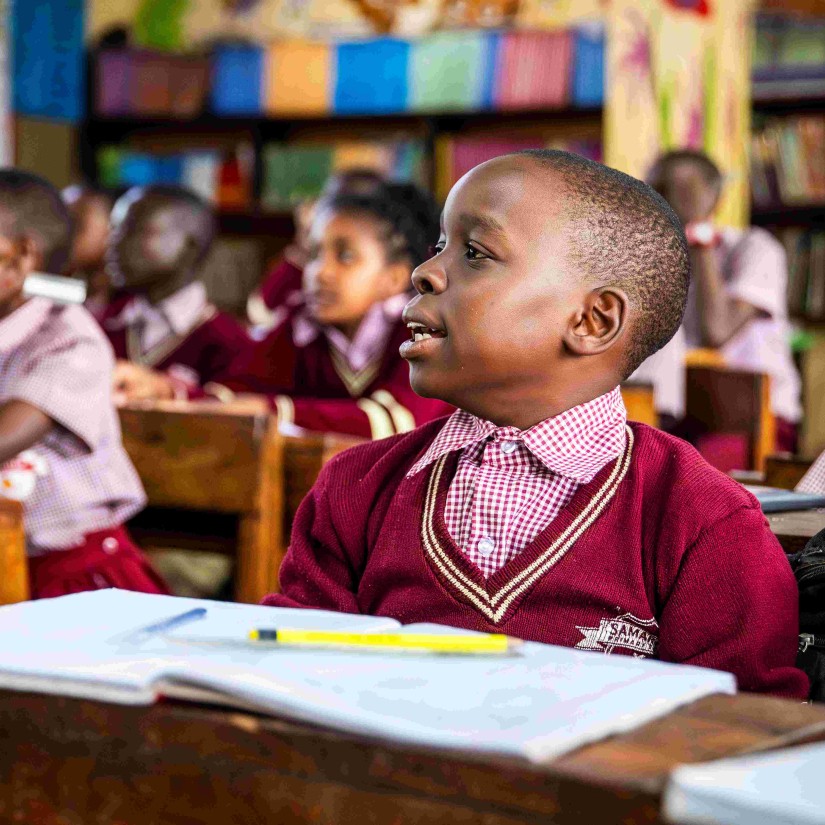
Secondary school
Over 600 students attend Namugongo Secondary & Vocational School (NSVS). All the teachers are certified and deeply involved in helping students grow. Secondary education is given at two levels:
- Ordinary Level (O-Level): the first four years
- Advanced Level (A-Level): two additional years for high-achieving students
Both levels are completed with a national exam.
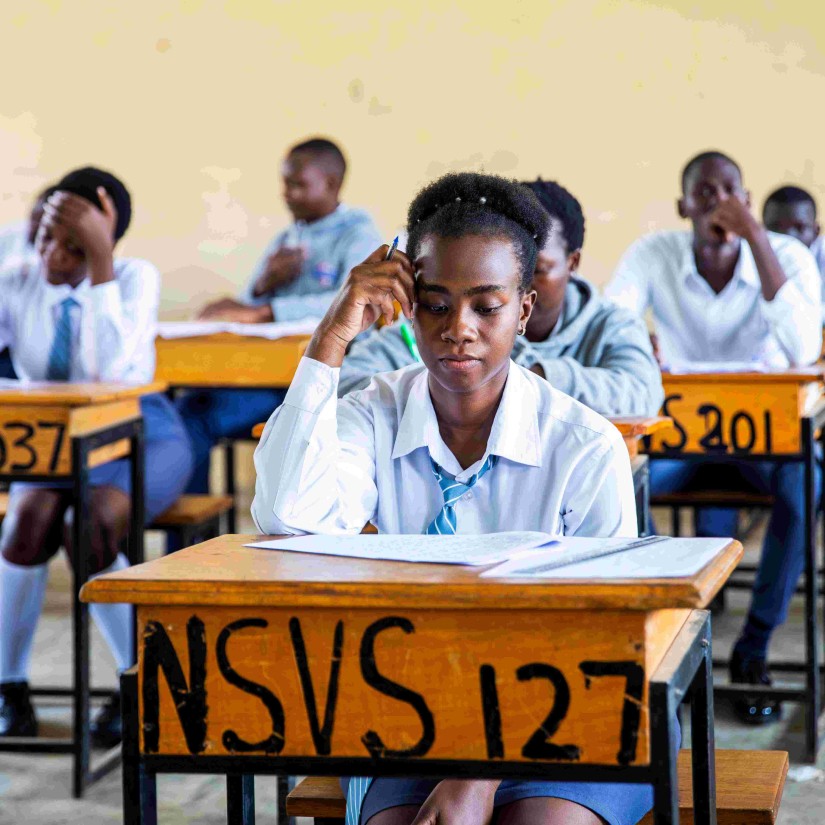
Vocational school
Alongside theory, every secondary school student takes three years of vocational training. This is unique, as most Ugandan schools don’t offer this. Students can choose from: Carpentry, Building, Tailoring, Electrical Installation, Catering & Hotel Management, Photography & Videography, Hair Dressing & Cosmetology.
Each trade ends with an official Directorate of Industrial Training (DIT) exam. With this diploma, students can immediately find work, pursue further studies, or start their own business.
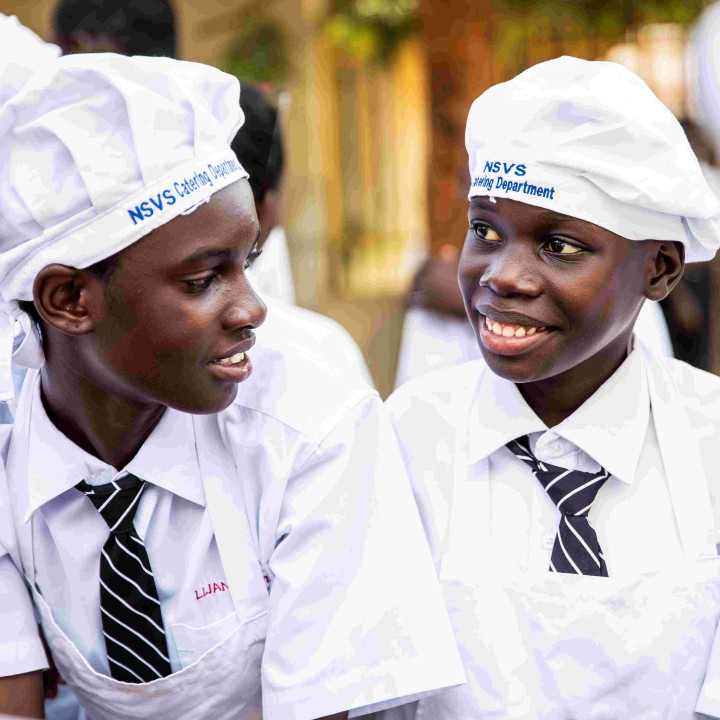
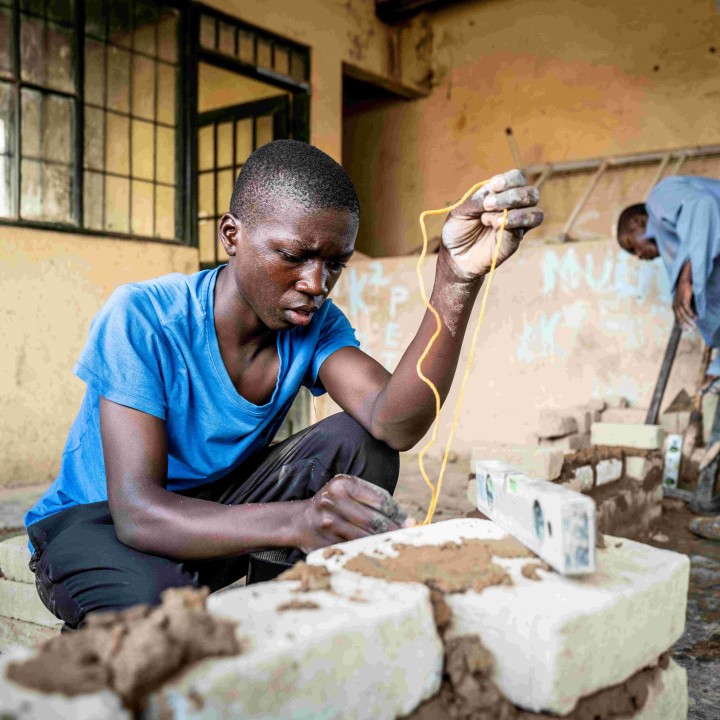

Ugandan Staff
On our campus, 100 Ugandan staff members dedicate themselves wholeheartedly to the children—teachers, cooks, social workers, and maintenance staff. What stands out most? Their passion for both their work and the children. Some of them were once orphans themselves, who received the chance to study at our school. Today, they are teachers here, passing on the same love and care they once received to the next generation.
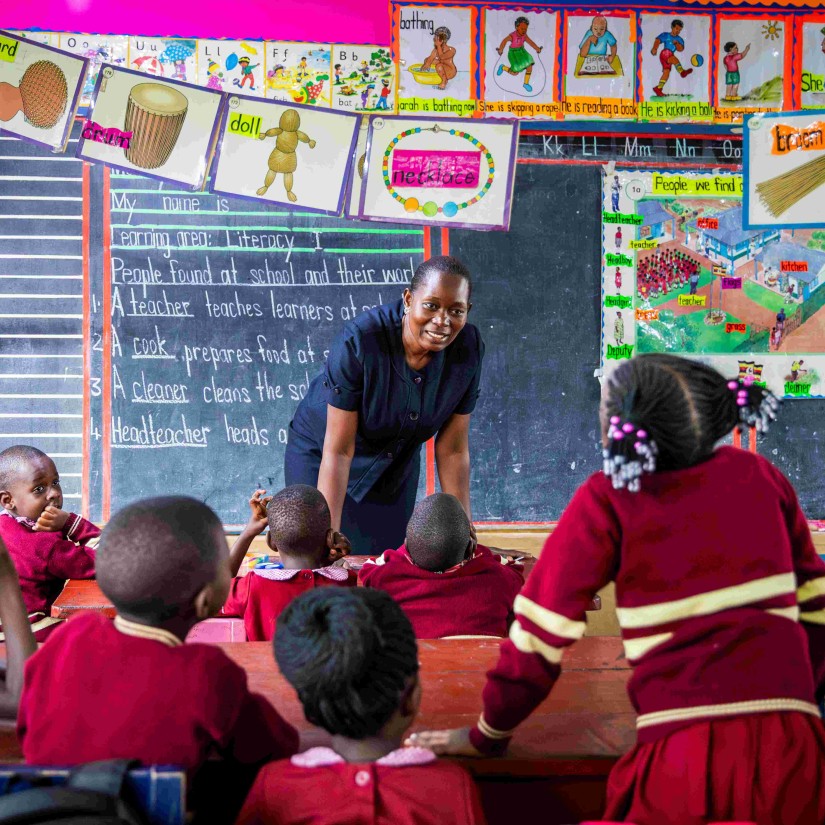
Taking Their Place in Society
Since the start of the foundation, hundreds of students have graduated—children who once had no future. They were given the chance to go to school, to discover and develop their talents, and today they have jobs. They can now provide for themselves and their families, and they are taking their place in society—making a real difference.
That is from Hopeless to hopeful!

